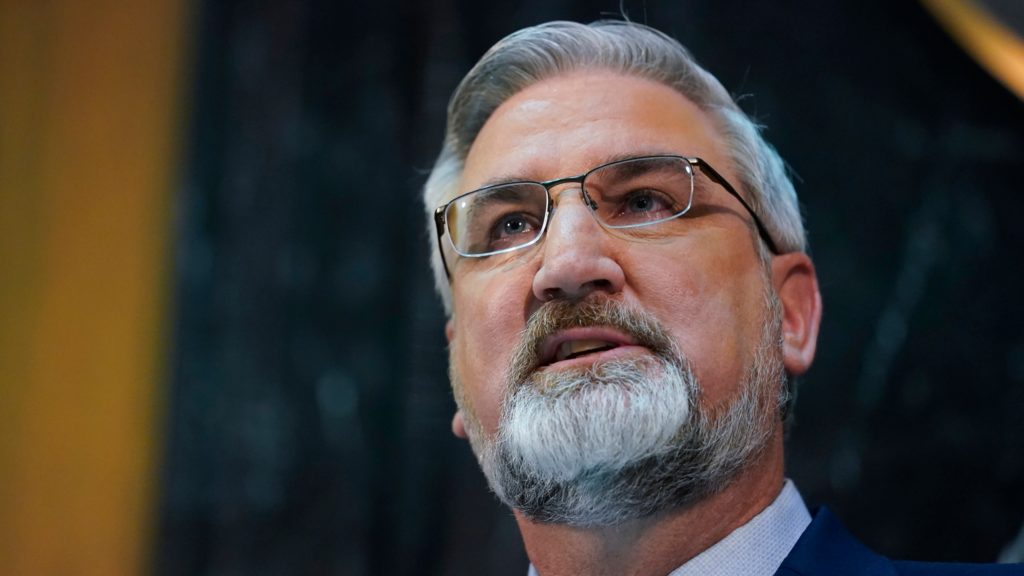FOX59 | INDIANAPOLIS — Indiana Governor Eric Holcomb stated he could not “in good conscience” follow suit on President Joe Biden’s pardoning of thousands of Americans for “simple possession” of marijuana.
Hoosier offenders of low-level marijuana offenses will instead be left waiting as Holcomb chose to defer once again to federal marijuana laws — which still prohibits cannabis — stating that Biden should instead work with Congress on changing these laws federally, “especially if he is requesting Governors to overturn the work local prosecutors have done simply enforcing the law.”
“Until these federal law changes occur, I can’t in good conscience consider issuing blanket pardons for all such offenders,” Holcomb stated on Monday.
Holcomb’s call for a change at a federal level may ring hollow to some, however, since his calls to ask Biden to “work with Congress, not around them,” fails to point out that a majority of Republicans in Congress continue to withhold support for legalization of marijuana despite overwhelming bipartisan support amongst American voters for some form of legalization.
Holcomb has also historically not supported Indiana legalizing marijuana for either medical or recreational use, often deferring to federal law when the subject is broached. In the wake of Illinois legalizing recreational cannabis use, Holcomb stated, “I’m not convinced that legalization will lead anyone to the promised land… I’ve asked the federal government to enforce the law as it is, and I’ve let them know that we’re a law-and-order-state.”
Holcomb, who has admitted to using marijuana in college, has since expressed an openness to medical marijuana in the form of supporting studies by Indiana universities into its use.
On Monday, despite being unable to support pardons, Holcomb did agree that low-level marijuana offenses “should not serve as a life sentence after an individual has served their time.”
Holcomb pointed out that Indiana has acted proactively on the matter by allowing offenders with simple marijuana possession and a number of lower-level offenses to apply for expungement after serving their convictions, which seals their records meaning their offenses can’t be disclosed to employers or landlords.
But expungement after time served in lieu of legalization or pardons may garner little support from Hoosiers where more than eight in 10 reportedly stated to be in favor of recreational or medical legalization of marijuana.
H/T: fox59.com



